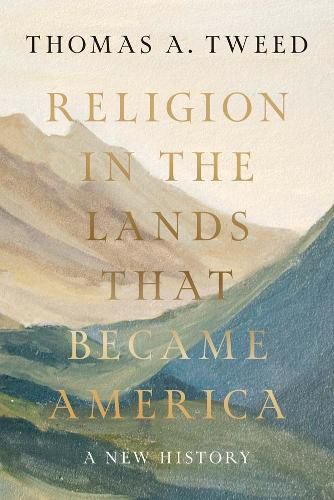Readings Newsletter
Become a Readings Member to make your shopping experience even easier.
Sign in or sign up for free!
You’re not far away from qualifying for FREE standard shipping within Australia
You’ve qualified for FREE standard shipping within Australia
The cart is loading…






A sweeping retelling of American religious history, showing how religion has enhanced and hindered human flourishing from the Ice Age to the Information Age
Until now, the standard narrative of American religious history has begun with English settlers in Jamestown or Plymouth and remained predominantly Protestant and Atlantic. Driven by his strong sense of the historical and moral shortcomings of the usual story, Thomas A. Tweed offers a very different narrative in this ambitious new history. He begins the story much earlier-11,000 years ago-at a rock shelter in present-day Texas and follows Indigenous Peoples, African Americans, transnational migrants, and people of many faiths as they transform the landscape and confront the big lifeway transitions, from foraging to farming and from factories to fiber optics.
Setting aside the familiar narrative themes, he highlights sustainability, showing how religion both promoted and inhibited individual, communal, and environmental flourishing during three sustainability crises: the medieval Cornfield Crisis, which destabilized Indigenous ceremonial centers; the Colonial Crisis, which began with the displacement of Indigenous Peoples and the enslavement of Africans; and the Industrial Crisis, which brought social inequity and environmental degradation. The unresolved Colonial and Industrial Crises continue to haunt the nation, Tweed suggests, but he recovers historical sources of hope as he retells the rich story of America's religious past.
$9.00 standard shipping within Australia
FREE standard shipping within Australia for orders over $100.00
Express & International shipping calculated at checkout
A sweeping retelling of American religious history, showing how religion has enhanced and hindered human flourishing from the Ice Age to the Information Age
Until now, the standard narrative of American religious history has begun with English settlers in Jamestown or Plymouth and remained predominantly Protestant and Atlantic. Driven by his strong sense of the historical and moral shortcomings of the usual story, Thomas A. Tweed offers a very different narrative in this ambitious new history. He begins the story much earlier-11,000 years ago-at a rock shelter in present-day Texas and follows Indigenous Peoples, African Americans, transnational migrants, and people of many faiths as they transform the landscape and confront the big lifeway transitions, from foraging to farming and from factories to fiber optics.
Setting aside the familiar narrative themes, he highlights sustainability, showing how religion both promoted and inhibited individual, communal, and environmental flourishing during three sustainability crises: the medieval Cornfield Crisis, which destabilized Indigenous ceremonial centers; the Colonial Crisis, which began with the displacement of Indigenous Peoples and the enslavement of Africans; and the Industrial Crisis, which brought social inequity and environmental degradation. The unresolved Colonial and Industrial Crises continue to haunt the nation, Tweed suggests, but he recovers historical sources of hope as he retells the rich story of America's religious past.